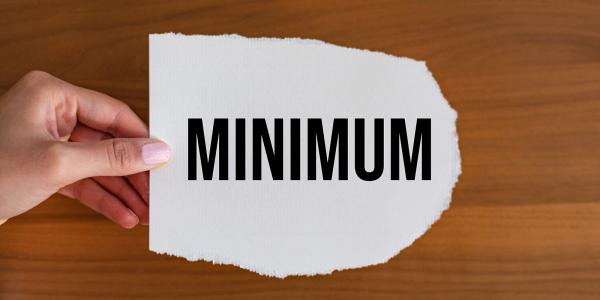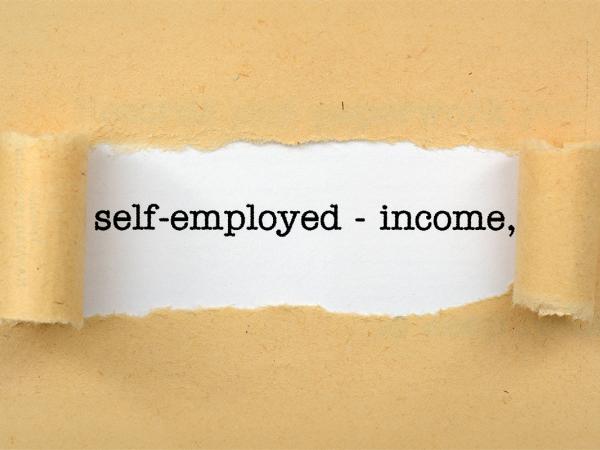Minimum income floor
The minimum income floor applies to some universal credit claims if you are self-employed. It does not apply in all cases. If the minimum income floor applies, you may be treated as earning a certain amount even if your actual earnings from self-employment are lower.

Content on this page:
Overview
The minimum income floor, sometimes called the MIF, is broadly a notional amount of earned income that is used to calculate your universal credit award where you are in gainful self-employment. It applies if your actual earnings fall below the minimum income floor level. It means the notional amount replaces your actual earnings from self-employment when calculating how much universal credit you will get.
The rules are complex. There are also a number of exceptions where the MIF does not apply even if you are in gainful self-employment with low earnings.
Who the minimum income floor applies to
The minimum income floor can only apply if:
- You are found to be in gainful self-employment; and
- You are in the all work requirements conditionality group
- You are not in your 12 month start-up period
How the minimum income floor works
Universal credit claimants usually have work requirements applied unless their earned income, from employment and self-employment, meets a certain threshold. This is sometimes called your ‘individual threshold’. If you are part of a couple you will have a ‘couple threshold’.
Your individual threshold is set based on the number of hours your claimant commitment says you are expected to work. For many people, this will be 35 hours a week but for some it will be less. The number of hours you are expected to work is multiplied by the relevant national minimum age for your age to get to your threshold amount for each monthly assessment period, minus deductions for notional tax and national insurance. No deductions are made for pension contributions in setting the level of your thresholds.
The minimum income floor means that if your earned income (that is, your profit from the gainful self-employment along with any employed earnings) in the assessment period is less than this threshold, you are treated as having earned income equal to your threshold amount.
This notional amount will be used as your earned income figure when calculating your universal credit award.
Joint claims
If you have a joint claim, income from you and your partner is taken into account to calculate your universal credit award. You will have your own individual thresholds added together to create your couples threshold.
If you are a member of a couple and your self-employed earnings for an assessment period are lower than your individual threshold and your combined earnings are less than your couple threshold, then the minimum income floor applies to your self-employed earnings. However, the minimum income floor is reduced by any amount by which your combined earned incomes exceeds your couple’s threshold.
If your self-employed earnings are above your individual threshold (the minimum income floor amount) then no further adjustment is needed.
If you both have earnings below your individual thresholds, as the self-employed claimant, you will be treated as having income equal to your individual threshold (the minimum income floor amount). In this situation, your partner on the joint claim may be subject to conditionality requirements because their earned income is lower than DWP expect it to be.
When the minimum income floor does not apply
The minimum income floor does not apply in all cases. It does not apply at all in the following situations:
- During a start-up period. This applies to new or existing claims and the start-up period lasts for up to 12 months starting with the beginning of the assessment period that DWP decide you are in gainful self-employment and taking steps to increase your earnings to your individual threshold. DWP can terminate a start-up period if you stop being in gainful self-employment or are no longer taking steps to increase your earnings to the required level.
- If you are not in the all-work requirements group.
- If you are not gainfully self-employed.
- Where you have moved over to universal credit from legacy benefits under the formal managed-migration exercise, the minimum income floor is not applied for the first 12 months (rule applies from 24 July 2019)
- within the first twelve months of a new claim for universal credit (rule applies from 23 September 2020)
The minimum income floor and carried forward losses
Under the rules for calculating income from self-employment, unused losses from an earlier assessment period can be carried forward and deducted from your profit in a later assessment period. This appears to lead to a situation where a carried forward loss is used up to reduce profit in the current assessment period but if it brings that profit below your individual threshold level and you are subject to the minimum income floor rules, then the minimum income floor can be applied, effectively wasting the loss.



